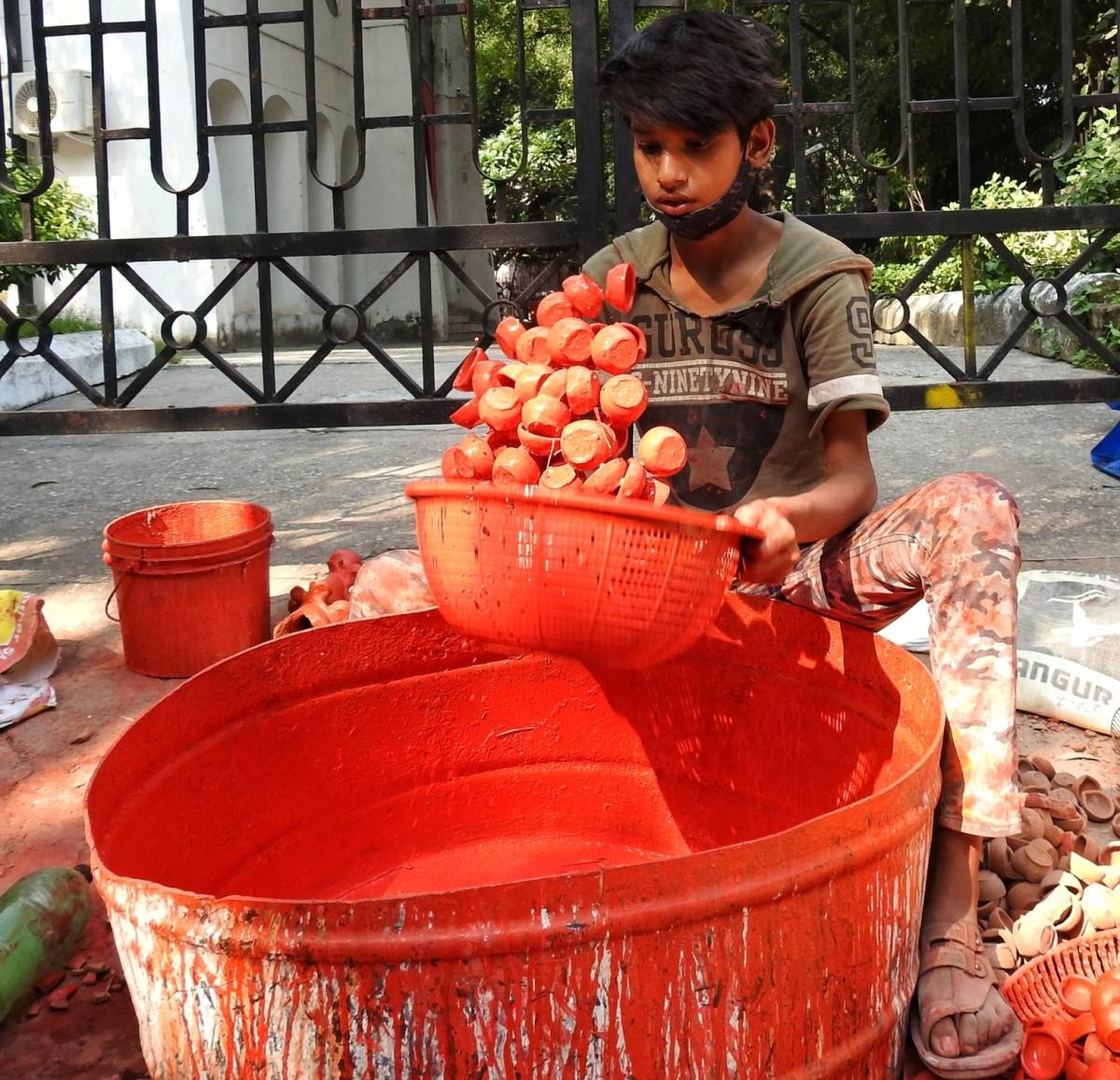African countries are struggling to stem child labour as situation worsened by COVID-19 pandemic
As the world commemorated the World Day Against Child Labor, Uganda said it is making effort to eliminate the vice, which has been exacerbated by the ongoing COVID-19 pandemic.
The Uganda National Household Survey 2019/2020 shows that child labor increased to 36 percent up from 21 percent. When government reopened schools in January this year after about two years of closure because of the pandemic, one in 10 school children did not report back to school, according to figures by the United Nations Children’s Fund. Many are believed to have slipped into child labor.
Children aged between 5-17 years engage activities including household chores, selling commodities on streets, working on plantations, in stone quarries, among others. According to Uganda Bureau of Statistics, 45 percent of children from households living below the poverty line are forced out of school to work and supplement their parents’ incomes.
A Ministry of Gender, Labor and Social Development statement issued here on Sunday said government developed the National Child Labor Policy and Employment Act, which acts as the principal legal framework to curb child labor.
Government has stepped up labor inspection and enforcement of labor standards to ensure compliance with laws against child labor, according to the statement.
Government rolled out Universal Primary Education, which provides for free primary education for all school going age children. Children whose guardians could not afford tuition fees had an opportunity to go to school. Primary school enrolment was at 8.8 million in 2017 and literacy rate is at 76 percent.
According to the ministry, government has rolled out several wealth creation programs aimed at increasing household incomes, which will economically empower families and stop children from involving in child labor.
Bernard Amuriat, the assistant commissioner for labor inspection at the Ministry of Gender, Labor and Social Development, argued that government alone cannot eradicate child labor without everyone’s involvement including parents, development partners and leaders.
ALSO READ:China hits back at WHO report on Covid origins
Amuriat said central and local governments are coming up with ordinances to supplement the national laws. Lower local governments are enacting by-laws to protect children. Those who are found working during school time are rounded up.
Many of the child laborers especially in the capital Kampala are from the semi-arid northeastern Uganda, which sometimes faces food insecurity. Amuriat said there are efforts to come up with a declaration. At the village level in the region, there are committees which create awareness and intercept children who are being smuggled to Kampala. Intelligence has also been beefed up to arrest smugglers.
Crisis in Zanzibar
Tanzania’s Zanzibar authorities vowed to end child labor as they marked the World Day Against Child Labor.
Mudrik Ramadhan Soraga, the Minister of State in the President’s Office responsible for Labor, Economy and Investment, said since 2005 authorities have been taking measures aimed at curbing child labor.
“The government has enacted laws that provide for protection of children against child labor,” Soraga told a news conference.
He said there are about 25,803 children aged between five and 17 that are experiencing child labor in the Zanzibar archipelago.
About 2,256 children, including 840 girls, have been rescued from child labor in different parts of Zanzibar’s twin islands of Unguja and Pemba, said Soraga.
The International Labour Organization started observing World Day Against Child Labor in 2002 to highlight the plight of children who are the victims of child labour.

